- Browse
- Arduino
Arduino Courses
Arduino courses can help you learn programming basics, circuit design, sensor integration, and robotics applications. You can build skills in troubleshooting hardware, creating interactive projects, and implementing automation solutions. Many courses introduce tools like the Arduino IDE for coding, various sensors for data collection, and components for building prototypes, allowing you to apply your skills in practical, hands-on projects.
Popular Arduino Courses and Certifications
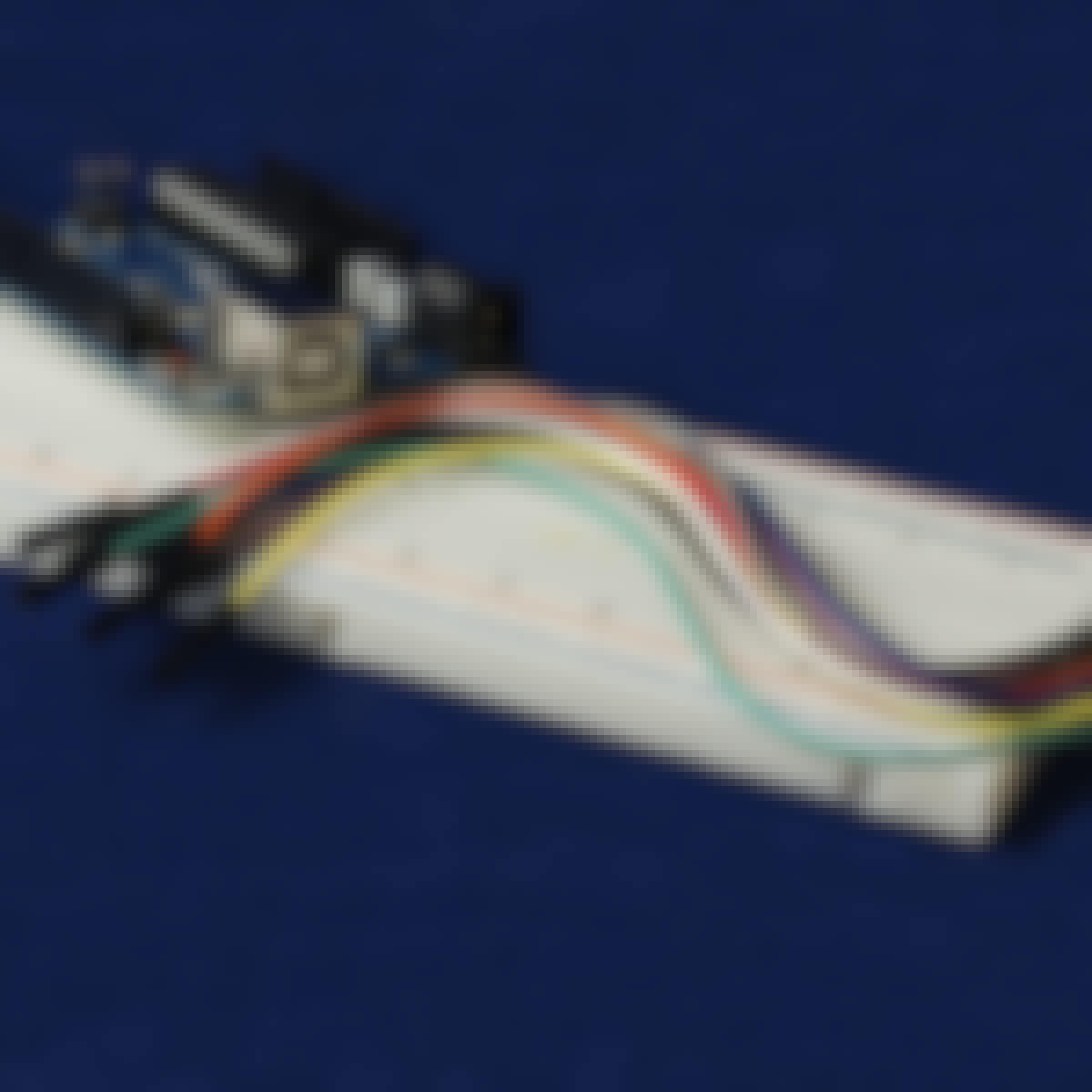 Status: Free TrialFree TrialU
Status: Free TrialFree TrialUUniversity of California, Irvine
Skills you'll gain: Embedded Software, Embedded Systems, Debugging, C (Programming Language), Electronic Components, Computer Hardware, Integrated Development Environments, Computer Programming, Electronics Engineering, Network Protocols, Development Environment, Digital Communications, Open Source Technology
4.7·Rating, 4.7 out of 5 stars7.2K reviewsMixed · Course · 1 - 4 Weeks
 Status: Free TrialFree TrialU
Status: Free TrialFree TrialUUniversity of California, Irvine
Skills you'll gain: Test Planning, Embedded Systems, Linux, Internet Of Things, Embedded Software, Basic Electrical Systems, Automation Engineering, User Requirements Documents, Electronics, Functional Requirement, Operating System Administration, Electronic Components, Systems Design, Operating Systems, Requirements Analysis, Network Protocols, Debugging, Application Programming Interface (API), TCP/IP, Python Programming
4.7·Rating, 4.7 out of 5 stars20K reviewsBeginner · Specialization · 3 - 6 Months
 Status: Free TrialFree Trial
Status: Free TrialFree TrialSkills you'll gain: Basic Electrical Systems, Electronic Components, Electronics, Interactive Design, Display Devices, Robotics, Control Systems, Computer Programming, Technical Communication, Embedded Systems, Development Environment, Simulation and Simulation Software, Digital Communications, Debugging, Data Storage, Real Time Data
4.7·Rating, 4.7 out of 5 stars10 reviewsBeginner · Course · 3 - 6 Months
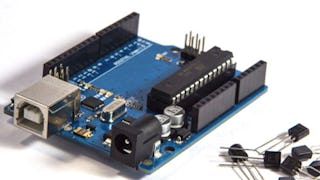 Status: Free TrialFree TrialU
Status: Free TrialFree TrialUUniversity of California, Irvine
Skills you'll gain: Internet Of Things, Basic Electrical Systems, Automation Engineering, Electronics, Electronic Components, Embedded Systems, Control Systems, Electronic Hardware, Wireless Networks, Electrical and Computer Engineering, Hardware Design, Peripheral Devices, Human Machine Interfaces, Electrical Wiring, Computer Systems, Programming Principles, Systems Engineering, Computer Programming, Remote Access Systems, Interactive Learning
4.7·Rating, 4.7 out of 5 stars3.9K reviewsMixed · Course · 1 - 4 Weeks
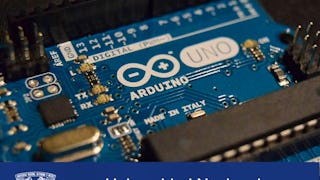 Status: PreviewPreviewU
Status: PreviewPreviewUUniversidad Nacional Autónoma de México
Skills you'll gain: Robotics, Automation, Control Systems, Prototyping, Programming Principles, Integrated Development Environments, Electronic Components, Embedded Systems, Electronics, Software Installation, Development Environment
4.6·Rating, 4.6 out of 5 stars630 reviewsMixed · Course · 1 - 4 Weeks
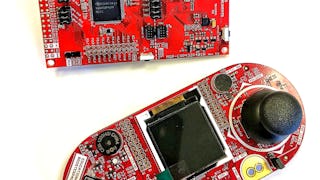 U
UUniversity of Colorado Boulder
Skills you'll gain: Software Configuration Management, Embedded Software, Embedded Systems, Git (Version Control System), Version Control, Build Tools, Software Development Tools, C (Programming Language), Development Environment, Software Technical Review, Software Design, Hardware Architecture, Computer Architecture, Debugging
4.5·Rating, 4.5 out of 5 stars645 reviewsIntermediate · Course · 1 - 4 Weeks
What brings you to Coursera today?
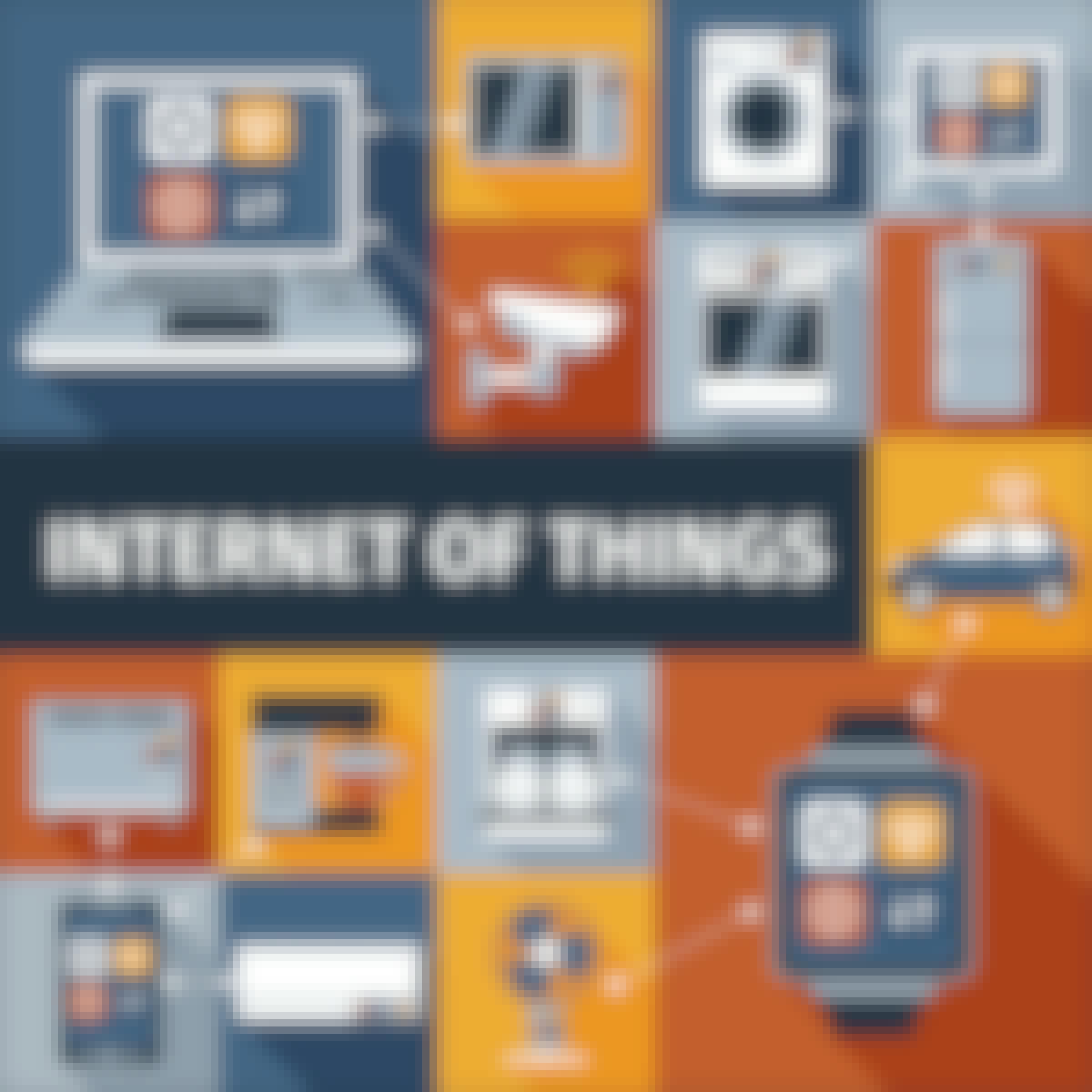 Status: Free TrialFree TrialU
Status: Free TrialFree TrialUUniversity of California, Irvine
Skills you'll gain: Embedded Systems, Internet Of Things, Embedded Software, Network Protocols, Wireless Networks, Computer Hardware, Hardware Architecture, Network Architecture
4.7·Rating, 4.7 out of 5 stars13K reviewsMixed · Course · 1 - 4 Weeks
 Status: Free TrialFree Trial
Status: Free TrialFree TrialSkills you'll gain: Embedded Software, C (Programming Language), Embedded Systems, Debugging, Peripheral Devices, Integrated Development Environments, Computer Programming Tools, Development Environment, System Programming, Electronics, Software Development Tools, Hardware Architecture, Data Structures, Electronic Hardware, Microarchitecture, Programming Principles, Performance Tuning, Computer Architecture, Control Systems, Computer Programming
4.5·Rating, 4.5 out of 5 stars259 reviewsIntermediate · Specialization · 3 - 6 Months
 Status: Free TrialFree Trial
Status: Free TrialFree TrialSkills you'll gain: Wireless Networks, Control Systems, Interactive Design, Software Installation, Electronics, Display Devices, Embedded Systems, Electronic Components, Computer Programming Tools, Development Environment, Electrical Wiring, Programming Principles, Debugging
Beginner · Course · 1 - 3 Months
 Status: Free TrialFree TrialJ
Status: Free TrialFree TrialJJohns Hopkins University
Skills you'll gain: Hardware Design, Electronic Hardware, Schematic Diagrams, Electronics, Computer-Aided Design, Mechanical Design, Communication Systems, Remote Access Systems, Wiring Diagram, 3D Modeling, Linux, Digital Communications, Electronic Components, Electronic Systems, Electrical Engineering, Web Applications, Internet Of Things, Systems Of Measurement, Digital Signal Processing, Data Processing
4.8·Rating, 4.8 out of 5 stars97 reviewsBeginner · Specialization · 3 - 6 Months
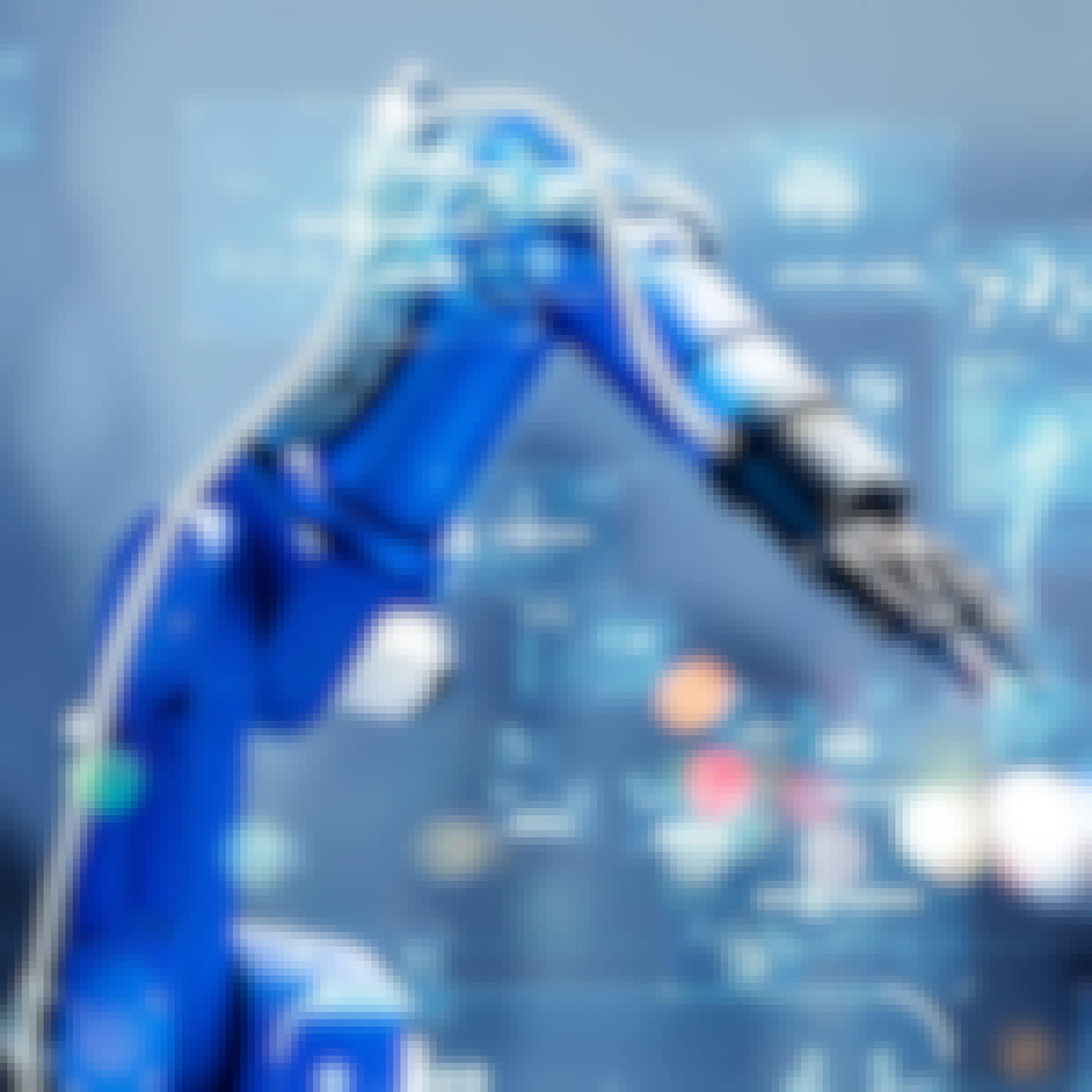 Status: NewNewStatus: PreviewPreviewS
Status: NewNewStatus: PreviewPreviewSSiemens
Skills you'll gain: Safety Standards, Robotics, Electrical Safety, Mechanical Design, Automation, Control Systems, Manufacturing and Production, Performance Testing, Human Machine Interfaces, Computer Programming, Programming Principles
4.7·Rating, 4.7 out of 5 stars16 reviewsBeginner · Course · 1 - 4 Weeks
 Status: NewNewB
Status: NewNewBBirla Institute of Technology & Science, Pilani
Skills you'll gain: Electronic Systems, Semiconductors, Basic Electrical Systems, Electrical Engineering, Electronics, Electronic Components, Electronics Engineering, Power Electronics, Electrical Systems, Engineering Analysis, Network Analysis, Engineering Calculations, Control Systems, Applied Mathematics
Beginner · Course · 1 - 3 Months
In summary, here are 10 of our most popular arduino courses
- The Arduino Platform and C Programming: University of California, Irvine
- An Introduction to Programming the Internet of Things (IOT): University of California, Irvine
- Arduino For Beginners - 2023 Complete Course: Packt
- Interfacing with the Arduino: University of California, Irvine
- Arduino y algunas aplicaciones: Universidad Nacional Autónoma de México
- Introduction to Embedded Systems Software and Development Environments: University of Colorado Boulder
- Introduction to the Internet of Things and Embedded Systems: University of California, Irvine
- Embedded Software Development with C: EDUCBA
- Arduino Bootcamp - Learning Through Projects: Packt
- Raspberry Pi Projects: Johns Hopkins University
Frequently Asked Questions about Arduino
Arduino is an open-source electronics platform based on easy-to-use hardware and software. It consists of a microcontroller and a development environment that allows users to create interactive projects. Its importance lies in its accessibility and versatility, making it a popular choice for hobbyists, educators, and professionals alike. Arduino enables users to build everything from simple LED circuits to complex robotics, fostering creativity and innovation in technology.
With skills in Arduino, you can pursue various job roles, including electronics engineer, embedded systems developer, robotics technician, and IoT (Internet of Things) developer. These positions often require a solid understanding of programming and hardware integration, making Arduino knowledge a valuable asset in the tech industry. As more companies adopt smart technologies, the demand for professionals skilled in Arduino continues to grow.
To learn Arduino effectively, you should focus on several key skills. First, understanding basic electronics principles is crucial, as it forms the foundation for working with circuits. Next, programming skills, particularly in C/C++, are essential for writing code that interacts with the hardware. Familiarity with sensors, actuators, and communication protocols will also enhance your ability to create complex projects. Lastly, problem-solving and critical thinking skills are vital for troubleshooting and optimizing your designs.
Some of the best online courses for learning Arduino include the Arduino Programming and Project Development Specialization and The Arduino Platform and C Programming. These courses provide comprehensive instruction on both the hardware and software aspects of Arduino, catering to various skill levels from beginners to advanced users.
Yes. You can start learning arduino on Coursera for free in two ways:
- Preview the first module of many arduino courses at no cost. This includes video lessons, readings, graded assignments, and Coursera Coach (where available).
- Start a 7-day free trial for Specializations or Coursera Plus. This gives you full access to all course content across eligible programs within the timeframe of your trial.
If you want to keep learning, earn a certificate in arduino, or unlock full course access after the preview or trial, you can upgrade or apply for financial aid.
To learn Arduino, start by familiarizing yourself with the Arduino IDE (Integrated Development Environment) and basic programming concepts. You can follow online tutorials, engage in hands-on projects, and participate in community forums. Practical experience is key, so consider building simple projects to apply what you've learned. Gradually, you can tackle more complex projects as your confidence grows.
Typical topics covered in Arduino courses include the basics of electronics, programming in C/C++, working with various sensors and actuators, and project development. Advanced courses may explore topics like object-oriented programming, interfacing with other devices, and integrating Arduino with platforms like Raspberry Pi. These topics provide a well-rounded understanding of how to use Arduino effectively.
For training and upskilling employees, courses like Arduino Bootcamp - Learning Through Projects and Interfacing with the Arduino are excellent choices. These courses focus on practical applications and project-based learning, making them suitable for workforce development in technology and engineering fields.










